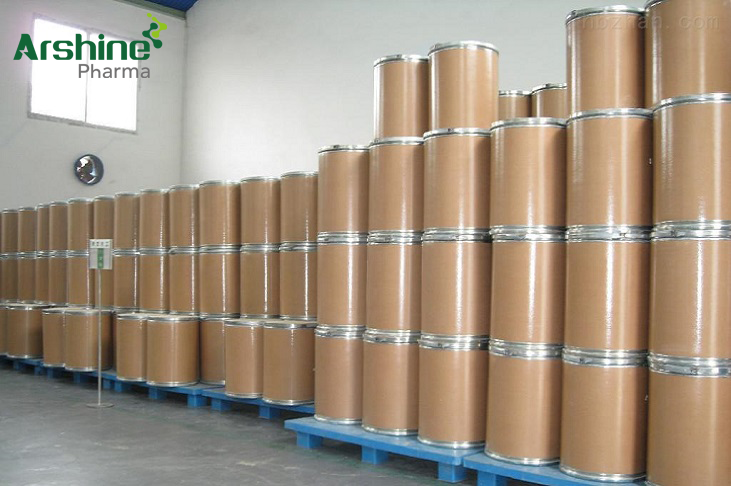
Introduction
Lincomycin HCl monohydrate is a potent antibiotic that belongs to the lincosamide class of drugs. It has been widely utilized in the pharmaceutical industry for several decades due to its efficacy in treating various bacterial infections. Lincomycin HCl monohydrate exhibits a broad spectrum of activity against both Gram-positive and some Gram-negative bacteria, making it a valuable tool in the fight against infectious diseases. This article explores the applications of lincomycin HCl monohydrate in the pharmaceutical industry, highlighting its mechanisms of action, therapeutic benefits, safety profile, and potential challenges.
-
Antibacterial Activity
One of the primary applications of lincomycin HCl monohydrate is its antibacterial activity. It works by inhibiting bacterial protein synthesis through binding to the 50S ribosomal subunit, thereby preventing the formation of functional peptide chains. This mechanism of action is particularly effective against Gram-positive bacteria, including Staphylococcus, Streptococcus, and Clostridium species. Lincomycin HCl monohydrate also exhibits activity against certain anaerobic bacteria.
-
Respiratory Tract Infections
Lincomycin HCl monohydrate has been used in the treatment of various respiratory tract infections caused by susceptible bacteria. It is particularly effective against Streptococcus pneumoniae, a common pathogen associated with community-acquired pneumonia. Lincomycin HCl monohydrate can also be used in cases of penicillin allergy or resistance, providing an alternative therapeutic option for patients.
-
Skin and Soft Tissue Infections
The antibiotic properties of lincomycin HCl monohydrate make it suitable for the treatment of skin and soft tissue infections caused by susceptible bacteria. It has shown efficacy in the management of conditions such as cellulitis, impetigo, and abscesses. Lincomycin HCl monohydrate's ability to penetrate deep into tissues contributes to its therapeutic benefits in these infections.
-
Bone and Joint Infections
In the pharmaceutical industry, lincomycin HCl monohydrate has also been utilized in the treatment of bone and joint infections caused by susceptible organisms. It is often used in combination with other antimicrobial agents to achieve optimal outcomes. Lincomycin HCl monohydrate's ability to penetrate bone tissues makes it a valuable component of treatment regimens for osteomyelitis and septic arthritis.
-
Surgical Prophylaxis
Lincomycin HCl monohydrate is frequently employed as a prophylactic antibiotic in surgical procedures where there is a risk of bacterial infection. It helps prevent postoperative wound infections and reduces the incidence of surgical site infections. Lincomycin HCl monohydrate's efficacy in this setting, coupled with its favorable safety profile, has made it a preferred choice for surgical prophylaxis in specific clinical situations.
-
Challenges and Considerations
While lincomycin HCl monohydrate has proven to be an effective antibiotic, there are certain considerations and challenges associated with its use. It is important to perform susceptibility testing to ensure the appropriate selection of patients who are likely to respond to treatment. Additionally, the emergence of bacterial resistance poses a challenge, emphasizing the need for prudent and responsible use of lincomycin HCl monohydrate to preserve its effectiveness.
-
Safety Profile and Adverse Effects
Lincomycin HCl monohydrate is generally well-tolerated when used as directed, but like any medication, it can have potential side effects. Common adverse effects may include gastrointestinal disturbances, such as nausea, vomiting, and diarrhea. Less common but serious adverse reactions, such as pseudomembranous colitis and allergic reactions, have been reported. It is crucial to monitor patients closely and discontinue the medication if any serious side effects occur.
Conclusion
Lincomycin HCl monohydrate plays a crucial role in the pharmaceutical industry as a potent antibiotic with broad-spectrum activity against various bacterial infections. Its applications in respiratory tract infections, skin and soft tissue infections, bone and joint infections, and surgical prophylaxis demonstrate its versatility and effectiveness. However, the emergence of bacterial resistance and potential adverse effects necessitate careful consideration of its use. By utilizing lincomycin HCl monohydrate judiciously and in accordance with clinical guidelines, healthcare professionals can maximize its therapeutic benefits while minimizing the risks associated with its use.
Incorporating Lincomycin HCl Monohydrate into Pharmaceutical Practices
For healthcare professionals in the pharmaceutical industry, understanding the applications and considerations of lincomycin HCl monohydrate is crucial. Stay updated on the latest research, guidelines, and local resistance patterns to ensure optimal prescribing practices. Perform appropriate susceptibility testing before initiating treatment and monitor patients closely for any adverse effects. Educate patients about the medication, including potential side effects and the importance of completing the prescribed course. Additionally, promote antimicrobial stewardship principles to help mitigate the risk of bacterial resistance and preserve the effectiveness of lincomycin HCl monohydrate and other antibiotics.
Please note that the information provided in this article is for general knowledge and should not replace personalized medical advice. Always consult with a healthcare professional for individualized recommendations based on specific circumstances.
